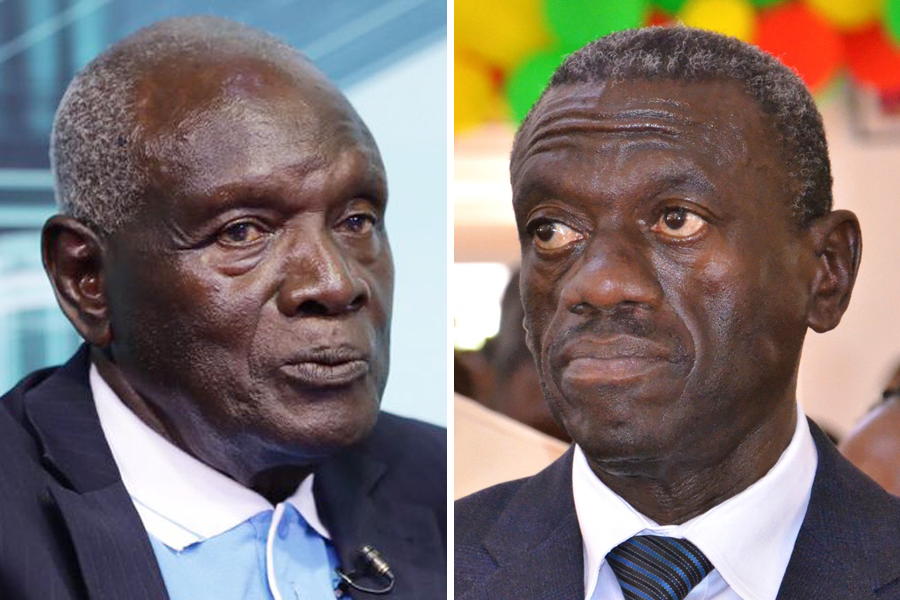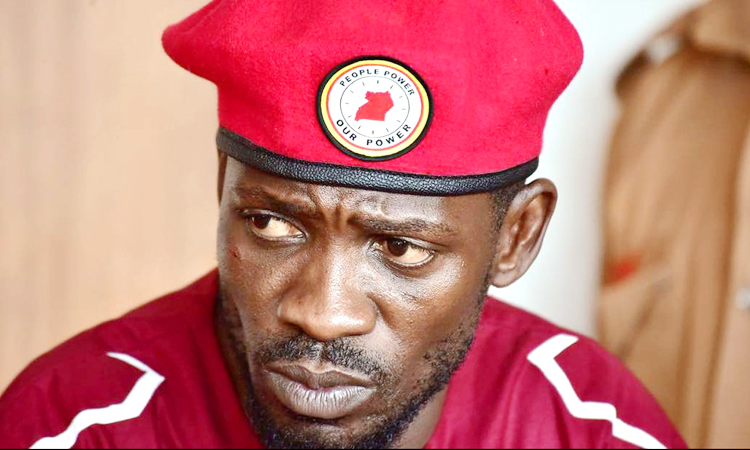Lord, We See What You’ve Done for Sudan… (Now, For Us, Please Wait!)
I was in the middle of writing my exam on political theory when long serving President Omar El Bashir of Sudan was toppled, or as the news states: stepped down.
He’d served a solid 29 years. Four more years than I have lived my entire life on earth. I reckon, that this change must feel good for young Sudanese. Except, it may not end well. Please note that I said, it MAY not end well.
Keep Reading
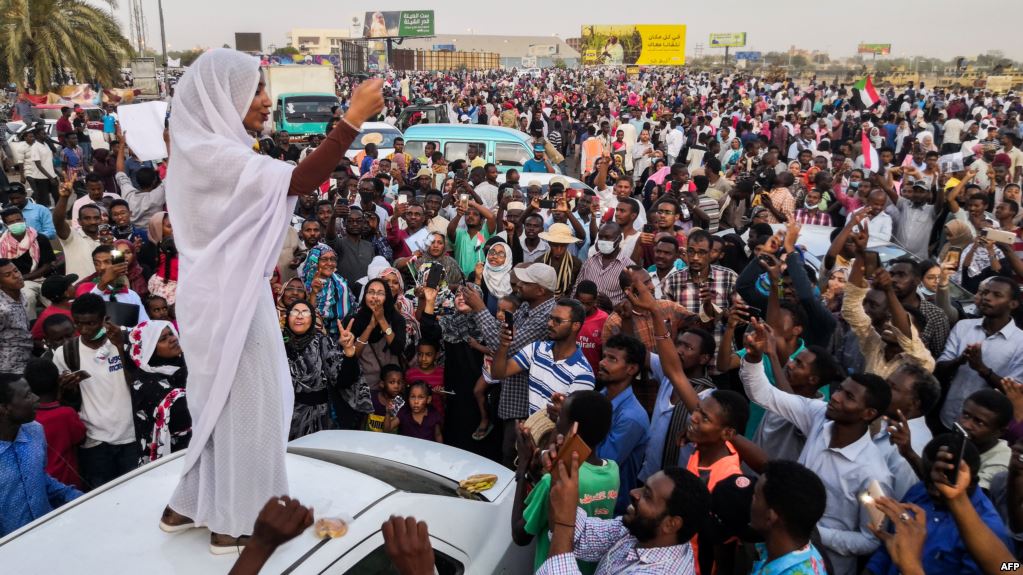 Alaa Salah, a Sudanese woman propelled to internet fame after clips went viral of her leading protest chants against President Omar al-Bashir
Alaa Salah, a Sudanese woman propelled to internet fame after clips went viral of her leading protest chants against President Omar al-Bashir
When the exam was on, our lecturer walked into the room to – among other duties of his – inform us that Bashir was finally gone. The distraction of having to pause the task at hand to celebrate his departure and simultaneously think critically of what could come next was mind-snuffing.
I, like many students in my class, have long harbored the idea that change automatically leads to better leadership and yet, examples of Libya, Egypt and Uganda itself have served up some of the most terrible transition stories. This is not to argue that change shouldn’t happen – in fact it should happen and happen more often, but it should be resolute and thought through.
With that said, let’s start with what should fuel the engines of change.
Popular movements are great engineers of change. They codify the notion that democracy – as it is set out, should work for the masses.
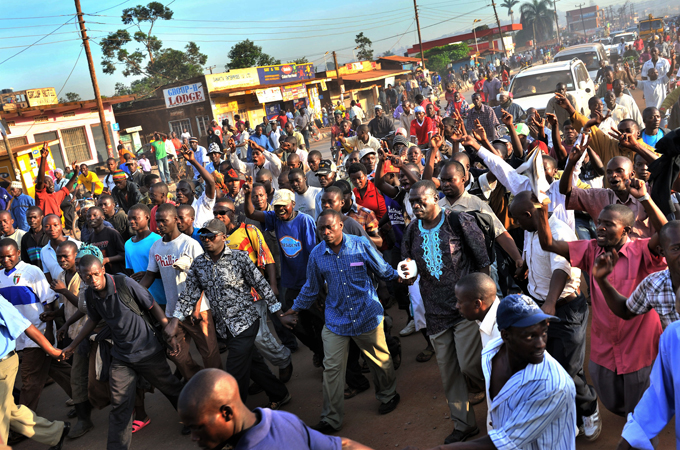 Walk to work was a popular demo movement in Uganda
Walk to work was a popular demo movement in Uganda
There was always an upstart at the commencement of democracy in Athens where Plato, a student of Socrates rejected the idea that masses should rule – or vote. He argued that masses must first demonstrate their ability to gain knowledge of what it is their vote means before they cast it. Plato was overpowered – intellectually and physically.
Democracy thus, became what it is today. That we all hold one vote regardless of what we know about governance.
In popular movements, however, we all champion one cause. In most cases, it is assumed that enough mobilization has been done to educate everyone in the popular movement of what that cause is.
Sadly, the narrative for many popular uprisings has been reduced to one singular fact – the toppling of a leader. Little attention is devoted to the reasons popular movements have for their demands. So, naturally, the threshold for measuring their success rests in answering that one question – has the leader fallen?
In Sudan, while it seems that the central factor for the mass protests was Bashir’s resignation, there was clamor for better food prices. The women in the protests were against the violent patriarchal cultures, there were military soldiers angered by the size of their cheques and all these reasons found convergence in the goal to topple Bashir.
This is at the heart of popular uprisings, with little regard to the consequences of their politics.
Politics, as taught to me in governance class – is the adjudication of the interests of a population. It involves careful calibration of these interests and satisfying those that are urgent to maintain a hold onto power whilst working towards the longer term ones that translate into better society.
It explains why, when every leader assumes office, they spare a raft of measures for their first 100 days.
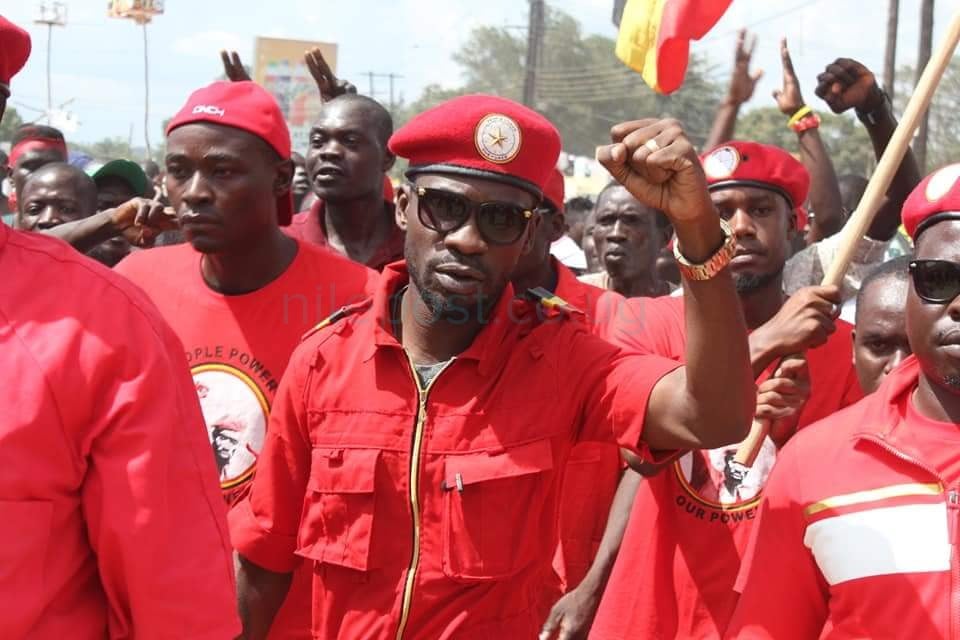
So, for popular movements to be successful, they must – at the very least – have a convergent factor in which most, if not all, of their core demands can be resolved.
Which bring me to Uganda. It is difficult to write objectively about events over here.
The current convergent factor for the popular Ugandan movements has been the desire to see a different face from that of President Museveni in power. Heading into his 34th year as President, the explicable drowsiness he has had on many voters – who were not born when he came to power – has been at an all-time high.
This singular factor has swept many social ills which society, and not him alone, represents under the rug. The patriarchal violent culture of men, the deeply corrupt public and private sector, the economic exclusion of large parts of the population, the deceit and power brokering of traditional kingdoms and churches.
If a popular movement shook the center of the power that his 33-year-old regime holds, it is likely that the forces that thrive in these ills will fight to defend it or fight to usurp its power. Both outcomes may not be the change we need. The long and dredging wait on the tarmac of Entebbe, if the march of popularity ever reaches there will be short-lived and rendered useless.
I have heard several my own friends say that they see what the Lord has done for the people of Sudan and they hope He – or She – does it here.
With personal insight and foresight, I hope the Lord waits.



